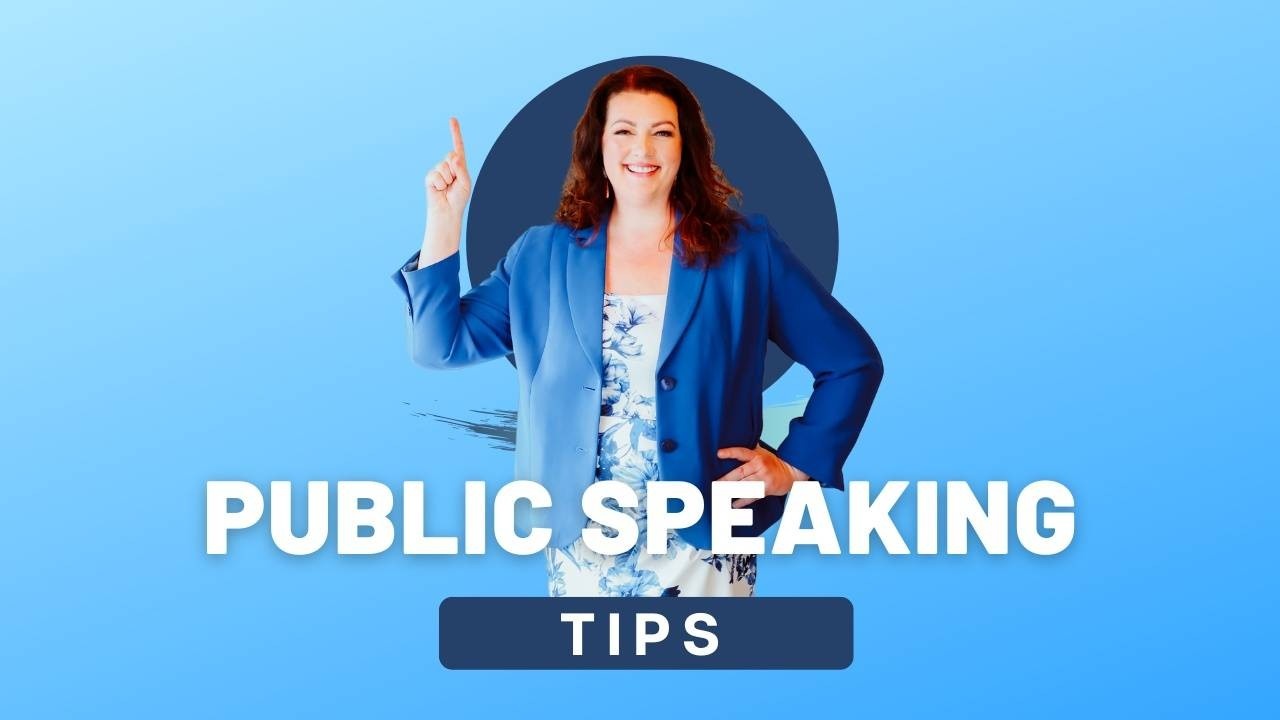5 ways to improve your public speaking

by Jaimie Abbott
“There are only two types of speakers in the world. The Nervous and Liars”
Mark Twain knew a thing or two. In fact, 75per cent of people suffer from nervousness when speaking in front of an audience.
I’ve trained hundreds of people in how to improve their public speaking skills and let me tell you – it can affect anyone including high-profile business people to actors, teachers and pilots.
Even Prince Harry recently admitted he suffers from glossophobia, a fear of public speaking.
Sufferers often go weak at the knees, their heart starts thumping, their mouth goes dry and their body shakes.
Do you dread giving presentations and do anything to avoid speaking in front of an audience?
Here’s how to make sure every presentation you give is a resounding success.
1) Know your audience
Who is your audience? What do they hope to gain from your words?
What are you hoping they will think, feel or do as a result of hearing you speak?
What kind of tone and atmosphere would be best for your listeners? Is it appropriate to include humour, or should you be more formal?
Only when you know what your audience wants, can you deliver an effective speech with the right key messages.
2) Be Prepared
Even if you know your subject inside out, your presentation will suffer unless you have prepared properly.
Practise your speech until you are sure you can deliver it confidently and without a lot of ‘‘ums’’ and ‘‘ahs’’.
It’s best not to read your speech, but to speak from brief notes or bullet points.
I recommend you do at least memorise your opening and closing remarks.
How big is the room? Do you need to speak louder so everyone can hear you? Do you need a microphone? If you are using PowerPoint or a whiteboard, ensure you are comfortable with them, and the audience can read them clearly.
Keep visual aids concise and relevant. They should emphasize the most important points, not be the focus.
3) Structure your speech
A good presentation always has clarity and purpose.
Your opening line should grab the attention of your audience, and make them want to hear more. It could be quote, an appropriate joke, or a challenging question.
The introduction should inform them of what is to come.
The body of the speech should have a logical progression and may be broken up into several parts.
For your conclusion, summarize your speech and leave your audience with a memorable closing line or a call to action.
4) Focus on the message, not yourself
It’s important to portray confidence with your body language and tone of voice, but don’t focus too much on yourself. You can greatly reduce your nerves if you are concentrating on the content of your talk, not on how you may be coming across to the audience. If you believe in what you are saying, you will naturally come across as confident. Think ‘‘expression, not impression’’.
It’s important to remember to make your presentation about the audience. Too many presenters make the mistake of talking about themselves rather than thinking about it from the audience’s point of view.
5) The more you talk, the better you’ll get
You may never get rid of all your nerves before speaking in front of an audience, but the more you practise, the less nervous you will be. Instead of avoiding public speaking, look for opportunities to talk more often, to improve your skills, and become a better speaker.
Some of my clients are comfortable speaking to a group of up to 100 people, but when the audience reaches 101 and above, the nerves set in.
Others are comfortable in front of thousands but put in a room with just five people and their legs turn to jelly!
Some prefer dim lighting, others prefer to see their audience with the lights turned up. Some prefer theatre-style seating, others prefer their audience to be seated in a U shape. It’s important to identify what makes you the most comfortable and go ahead and organise that setting so you can excel in your presentations every time.


